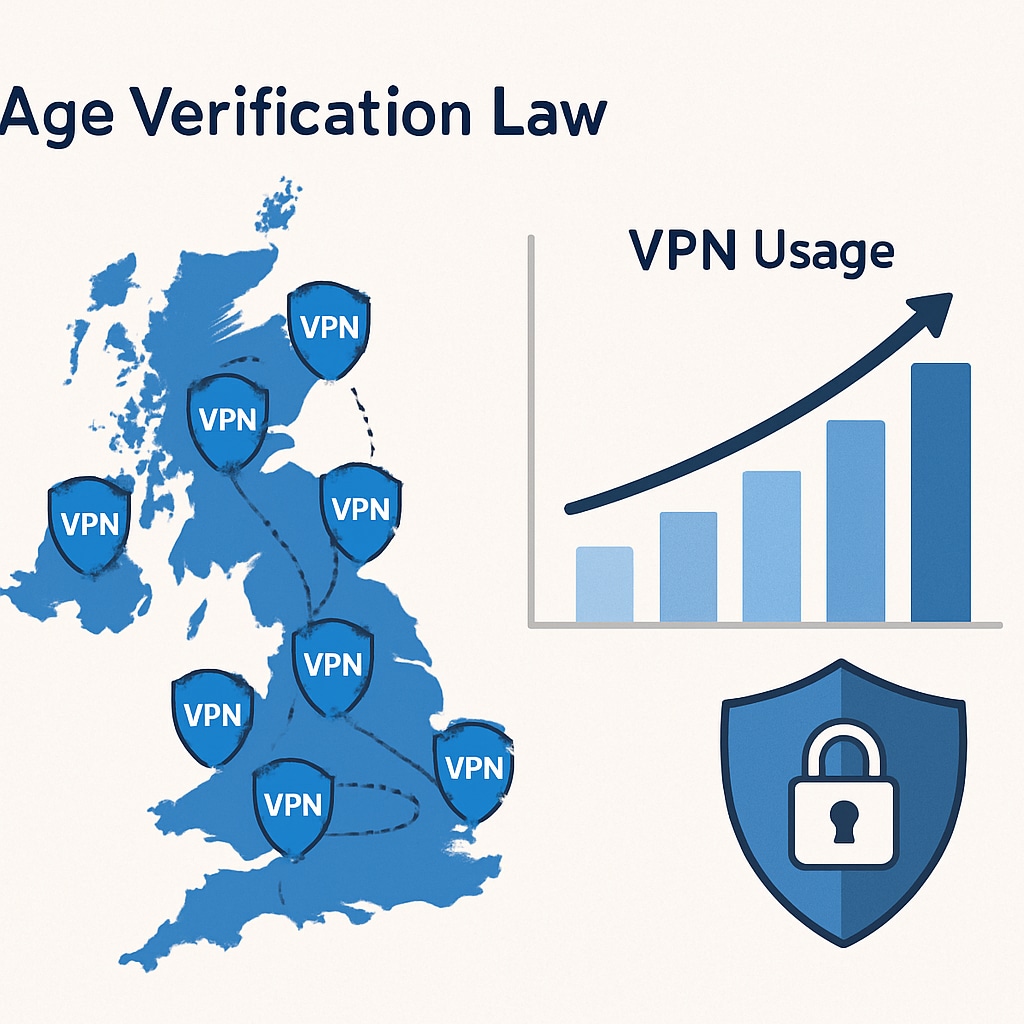The UK’s recent implementation of the age verification law has triggered a notable increase in VPN usage. Designed to restrict access to adult content and ensure compliance with age restrictions, this new regulation has inadvertently sparked concerns about online privacy and led many citizens to seek alternative ways to maintain their digital freedom. As VPNs (Virtual Private Networks) allow users to bypass geographical and regulatory restrictions, their popularity has skyrocketed since the law’s introduction.

Understanding the Age Verification Law
The UK’s age verification law mandates websites offering adult content to verify users’ ages before granting access. This policy aims to protect minors from inappropriate material while promoting safer online experiences. However, critics argue that the verification process, which often requires personal identification data, poses risks to user privacy and could lead to data breaches or misuse.
For example, under this law, users may need to submit details such as driver’s licenses or passports to confirm their age. Many view this as intrusive, with fears that their sensitive information could be compromised. Consequently, individuals have turned to VPNs as a way to circumvent these requirements and browse anonymously.
Why VPN Usage Has Increased Dramatically
VPNs have become a go-to solution for users who want to preserve autonomy and privacy online. These tools encrypt internet traffic and conceal users’ locations, allowing them to bypass restrictions imposed by the age verification law. According to recent reports, VPN usage in the UK has risen by over 50% since the law’s enactment, signaling widespread dissatisfaction with the regulation.
The surge can be attributed to several factors:
- Privacy Concerns: Many users fear their data could be mishandled during the verification process.
- Ease of Access: VPNs provide a seamless way to access restricted websites without submitting personal information.
- Cost Efficiency: While some verification methods incur fees, many VPN services offer affordable subscription plans.
This trend underscores the unintended consequences of digital regulations, where well-intentioned policies can push users to alternative, less regulated technologies.

The Broader Implications for Digital Policy
The rise in VPN adoption in response to the UK’s age verification law has broader implications for future digital policies. This phenomenon highlights the delicate balance between enforcing regulations and respecting individual privacy rights. Governments and policymakers must consider how regulations impact user behavior and the potential for unintended consequences.
Additionally, the surge in VPN usage poses challenges for enforcement. VPNs can obscure user locations, making it difficult for authorities to monitor compliance with the age verification law. As a result, this raises questions about the effectiveness of such policies in achieving their intended goals.
What’s Next for the UK and Internet Privacy?
As the UK grapples with the implications of its age verification law, the debate over online privacy and digital freedom continues. Policymakers may need to explore less invasive methods of protecting minors online, such as AI-based content filtering or educational campaigns about internet safety. Moreover, the public’s increasing reliance on VPNs highlights the urgent need for transparent and secure regulatory frameworks.
For users, the rise of VPNs serves as a reminder of the importance of staying informed about online privacy tools and practices. While VPNs offer a solution to bypass restrictions, they also underscore the growing demand for robust privacy protections in the digital age.
Readability guidance: This article uses concise paragraphs and clear transitions to improve readability. Lists are included to summarize key points, and technical terms like “VPN” are explained for accessibility. Overuse of passive voice and long sentences has been avoided to maintain clarity.


